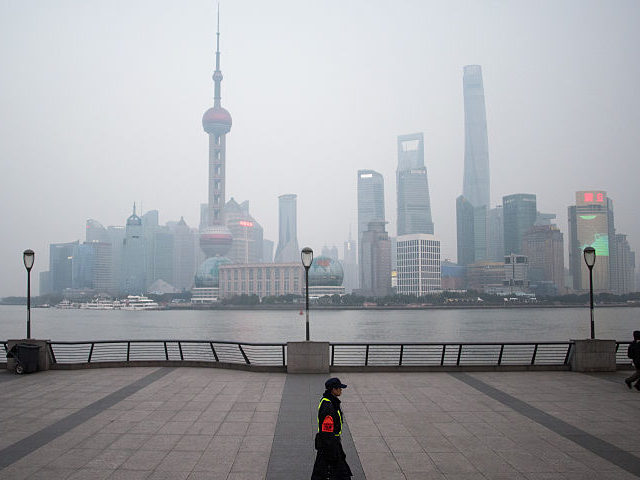Twenty North Korean women working for a clothing company in Shanghai reportedly vanished from their dormitory along with their manager in February, a potentially awkward case kept very quiet by both Chinese and North Korean officials until Radio Free Asia (RFA) reported it on Wednesday.
North Korea rents its citizens as virtual slave labor to companies in Asia, with most of their “salaries” taken by the regime in Pyongyang as much-needed foreign currency. North Korean workers abroad are tested for loyalty, kept in prison-like conditions, and threatened with severe punishment if they attempt to defect.
RFA suspected the missing textile workers and their manager disappeared last month in a desperate bid to seek refuge. They remain on the run today because China routinely defies United Nations conventions on refugees by sending North Korean defectors back home to face punishment or execution. China and Russia often bypass U.N. prohibitions on using North Korean forced labor by granting them “student” or “tourist” visas.
“The owner of the Chinese company that hired them called the North Korean manager, but he did not answer the phone, so [the owner] went to the dormitory to find that they had all disappeared,” an anonymous source in China told RFA.
“The North Korean consulate is under a state of emergency to find if they have already escaped and are in Southeast Asia or already entered South Korea,” the source said. “The consulate has requested cooperation from the Chinese police and is trying to track them, mainly by monitoring railway stations heading towards the border.”
Another source reportedly said the refugees were most likely hiding among Shanghai’s 26 million residents, possibly in a “planned escape led by a guide,” because they could not obtain train or bus tickets without proper identification.
RFA estimated tens of thousands of North Korean workers were employed in China before the Wuhan coronavirus outbreak, but pandemic lockdowns in border cities eliminated many of the jobs they filled. The lockdowns from China’s new wave of omicron coronavirus outbreaks, plus strict travel restrictions imposed by Beijing ahead of the Winter Olympics, had a similar depressing effect on demand for North Korean labor.
“Food processing, garment, and electronics factories, where many of the North Koreans work, have been shut down since early December. The North Korean workers have been hit hard,” a correspondent in the Chinese border city of Dandong told RFA in January.
The Dandong source said North Korean workers often seek work in China, even though Pyongyang seizes 75 percent of their income because they eat much better than they would at home – but supply disruptions from the pandemic lockdowns destroyed that incentive.

COMMENTS
Please let us know if you're having issues with commenting.